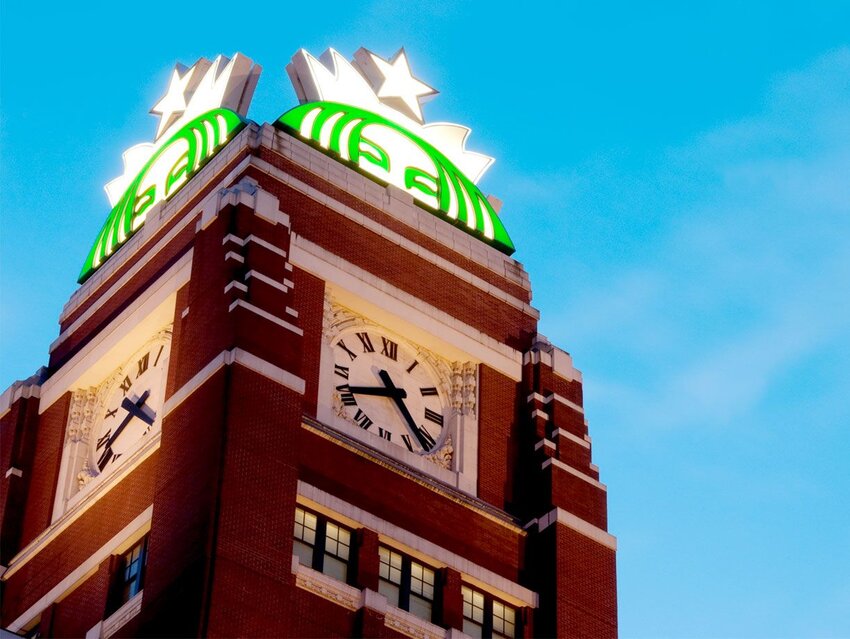When establishing a new business or brand, in many ways, it’s almost all in the name. Do it right and the name has the potential to become so ubiquitous that it becomes shorthand for the product itself — Band-Aid has become a universal word for adhesive bandages, even ones not produced by the brand itself. Same with Scotch tape, Kleenex, Ziploc, Xerox, and Velcro. While not every brand name becomes household shorthand, some of the biggest international brands have creative backstories and some tricky issues with mispronunciation.
Adidas
The German sportswear brand, founded in 1949, takes its name from the nickname of founder Adolf “Adi” Dassler. His brother, Rudolph “Rudi” Dassler, also founded a sportswear company called Ruda, which eventually evolved to Puma. “Adidas” is pronounced differently depending on location – in America, we emphasize the second syllable, as in “uh-DEE-dus.” In most of Europe, they say “AH-dee-dus.” Given that it’s a German brand, it’s fair to assume the latter pronunciation is technically more correct.
Arby’s
Arby’s was but one of the many chains to arise in the fast food boom of the 1960s and 1970s. While a popular assumption is that it’s a phonetic pronunciation of R.B., for the brand’s most quintessential offering, roast beef, it actually comes from the names of the founders. The Raffel Brothers originally wanted to call their restaurant concept “Big Tex,” but the name was already taken.
FAGE
Established in the 1970s as one of the first Greek-style yogurts on store shelves, FAGE takes its name from the Greek word meaning “to eat.” It’s one of the most commonly mispronounced brand names stateside — while many of us pronounce it as “FAYGE,” it’s actually pronounced “FA-hey.”
IKEA
Despite its sometimes impossible-to-follow assembly instructions, IKEA remains one of the best-loved and most common furniture brands in the world. Its name comes from the initials of Swedish founder Ingvar Kamprad, plus the initials of the village he grew up in, Elmtayrd Aguunryd. While English speakers generally pronounce it “Eye-Key-Uh,” it’s actually supposed to be “Ee-Kay-Uh.” The unique IKEA product names came about because Kamprad was dyslexic. Instead of generic strings of letters or numbers, he chose to name his products after easy-to-remember proper nouns. For example, sofas and coffee tables took their names from Swedish places (Klippan, Malmö), and beds and wardrobes came from places in Norway.
LEGO
This company name has become synonymous with building block toys, but originally, it produced stepladders, ironing boards, stools, and wooden toys. Danish carpenter Ole Kirk Christiansen established its name in 1934 from the Danish phrase, Leg Godt, which means “play well” in English and “I put together” or “I assemble” in Latin. LEGO began producing its most famous product, colorful interlocking plastic bricks, in 1949.
Pepsi
Pepsi-Cola was invented in 1898 by drugstore owner Caleb David Bradham. Named for the digestive enzyme pepsin, it was intended to be a cure for indigestion, or “dyspepsia.” It’s no longer sold at the pharmacy, but Pepsi remains one of the top-selling sodas on the market. The company merged with Frito-Lay in 1965 to form PepsiCo, one of the world’s largest food and beverage companies.
Sony
Founded in 1946 in the aftermath of World War II, the Japanese electronics giant took its name from the Latin word sonus, meaning sound. It chose this name intentionally so as to be pronounced easily in many languages. It was conceived to be an international term, as opposed to a solely Japanese one.
Saucony
The sport shoe brand was founded in 1898 on the banks of the Saucony Creek in Pennsylvania, from which it takes its name. The name of the creek comes from the indigenous Lenape word saconk, meaning “where two rivers run together.” Commonly mispronounced “suh-co-NEE,” it’s actually pronounced “SOCK-uh-nee.”
Starbucks
When the coffee giant was established in 1971, one of the founders, writer Gordon Bowker, borrowed naming inspiration from Herman Melville’s epic novel Moby Dick. However, Melville’s Starbuck doesn’t appear to have an affinity for the caffeinated beverage in the pages of the book, but the founders were sure that “ST” names had marketing power.
Featured image credit: 400tmax/ iStock

